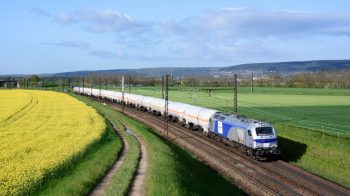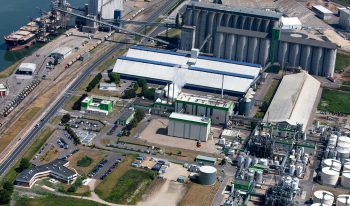The itinerary of a low carbon biofuel marketed in northern European countries, tracked through the certified OleoZE solution, is a good example of all the guarantees that the company brings to its customers.European regulatory and tax challenges related to decarbonised transport are building a new energy supply.
Carbon savings today have a fundamental role in determining the price of renewable energy.
When a cargo of rapeseed ester, manufactured at the Grand-Couronne Saipol factory in Seine-Maritime, leaves the port of Le Havre for the ARA area (Antwerp – Rotterdam – Amsterdam), it has in its register of certifications, in proper and due form, a very special passport: the Proof of Sustainability (PoS). In addition to the inevitable customs stamps and other mandatory papers, it is the essential means to enter the German and Swedish biofuels market. Proof of rigorous, controlled traceability, at every stage, starting from the rapeseed field, it guarantees the low carbon footprint of the oil or biodiesel fuel that will travel in the cargo hold. This is because the countries for which the product is intended fiscally recognise the environmental benefit of renewable energies through the prism of their greenhouse gas (GHG) economy. In this context, energy is valued according to its carbon footprint. And the added value is shared by Saipol with all upstream farming activities.
So in order to advance with confidence, Saipol has been strengthening its process based on the sustainability criteria for oilseeds since 2018. Their anchor point? A skills set related to the company project that makes sense: to support the agroecological transition of French farms while meeting the European objectives of achieving carbon neutrality for transport in 2050.
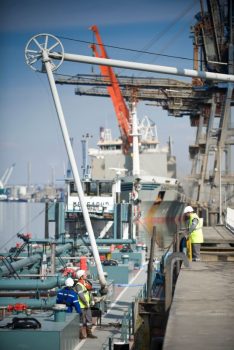
One carbon footprint, one farm
In this chain of efficiency, a hub: the Carbon and Energies desk run by Romain Lebas. Along with his three employees, his mission is to orchestrate the diversity of renewable energies sold by Saipol and to ensure the compliance of each batch marketed in terms of GHG reduction performance. Thus, upon receipt of an order, the team ensures that all the ingredients are implemented. Their field of action? Mainly the solution for purchasing seeds from OleoZE regenerative agriculture, in line with the contracts for seeds from collectors and farmers. Their strategy? Stock records. “With my team, we have a status that combines the skills of a trader with those of a logistics specialist”, he says. A trader, because it is the carbon that decides the price, and a logistics specialist, because we have to deal with all the batches that we can move to one of our factories to achieve a carbon target savings. ”
620,000 Tonnes
of low GHG-certified biodiesel were sold by Saipol in Germany and Sweden from January 2018 to June 2021.
Any CO2 saving has a pivotal effect. It is thus based on a formula set in stone: “One carbon footprint, one farm”. Because the seeds that carry weight or rather which reduce the weight of carbon are produced on French farms. They grow rapeseed according to conservation agriculture. By entering into contracts directly with Saipol via OleoZE, or through their storage organisations, cooperatives or traders, farmers undertake to comply with practices that promote carbon storage in soil, limiting direct and indirect GHG emissions. This means, for example, simplified soil working techniques, intercropping, or substituting nitrogenous mineral fertiliser with organic compost. The carbon value of rapeseed is based on a method of calculation recognised by the European Commission.
Essential controls at each stage, from field to factory
Of course, proof of sustainability means possible controls by German and Swedish authorities. The question, addressed to the energy supplier, can be very precise, with elements of proof of reduction in GHG levels in a batch of seeds. Via OleoZE, this principle applies as far back as the rapeseed plot with a thorough calculation of GHG savings and the corresponding practices. “This is the key element in guaranteeing the sustainability of this system and imposing ourselves as a major player in the market”, says Romain Lebas. In addition, each farmer is audited on his farm. The same strategy applies to storage agencies. On the other hand, it is they who provide evidence for their members or farmer clients. “In rare cases we have had to cancel a contract, mostly due to side effects. For example, a farmer had turned over permanent grassland to sow rapeseed, which has been banned since 2008”, he recalls.
Saipol is also audited by its customers on all sustainability criteria. Before entering the details of each seed source, auditors can rely on sustainability certificates. The latter are associated either with the types of processed raw materials, or with the countries that receive the energy. The company has three different certification schemes, which will soon increase to four or even five.
The 2BSVS certificate, recognised in France since the first renewable energy promotion directive of 2009, applies to upstream agriculture and is a first level of guarantee on raw materials. The ISCC-EU certificate is the essential proof of sustainability to operate in northern markets. An extension of this certification according to the CORSIA* requirements, now under consideration, is intended for aviation energy. This certification makes particular sense with the development of “OleoVE” pre-treated oils available for refineries and biorefineries because their potential market would be biojet fuel.
The Oleo100 energy, the B100 developed by Saipol, also has specific certification. Made with conventional French rapeseed, it provides 60% GHG savings compared to diesel.
Last but not least, why not plan to launch in much more distant markets? “The biofuels markets are under pressure in the United States. We are thinking about it”, said Romain Lebas. With the US-EPA sustainability certificate on board of course!
* Carbon Offsetting and Reduction Scheme for International Aviation. Find out more.
Thank you Brassica carinata!
“When I arrived at Saipol in 2018, I discovered Brassica carinata”, says Romain Lebas, Head of Carbon and Energy Desk. This crucifer is distinguished by a neutral carbon footprint for the reduction of greenhouse gases. A North American partner traded these seeds for us from the United States and Argentina. After having reviewed all of our sustainability management processes in 2018, the example of Brassica carinata showed us that with an intermediate crop with a good GHG score, we can improve the carbon performance of our oils. And by capturing more value, we can redistribute this to farmers to encourage soil conservation agriculture (SCA). So why not apply this reasoning to French rapeseed and guarantee it with a low carbon footprint with a calculation method recognised by the European Commission? The OleoZE seed purchase solution showed the way.
We are of course maintaining our imports of Brassica carinata in growing volumes because this enhances the possibilities of combinations for road transport biofuels’ markets in northern European and the biojet market throughout Europe. Intercropping over six months, between two soya beans, it supplements the income of Argentinian farmers who would otherwise leave the soil bare. As for the carbon footprint of its importation, it weighs very little: it is barely twice as high as the transport of seeds per truck in France.
With our strength in addressing the challenges of decarbonised transport, we also intend to multiply low carbon sources of supply. Under consideration in France: intercrop camelina. This is line with an alternative approach for the production of biojet, but also with other products that have a waste or residue status such as used frying oils, acid oils for refining and esterification, and other waste from agro-industry. ”
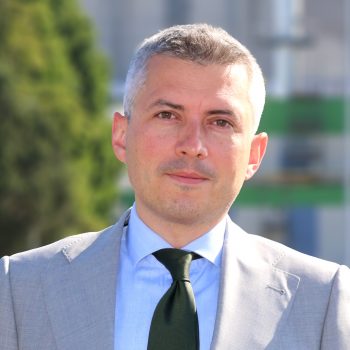
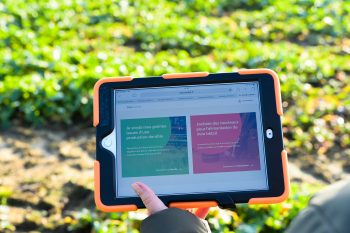
Thanks to OleoZE’s instant calculator, all farmers and collector organisations can declare the farm’s practices and determine the price bonus associated with its rapeseed or sunflower production and the storage of carbon in soils.

